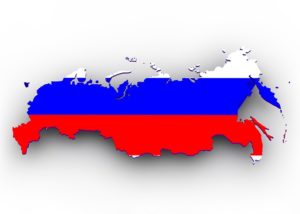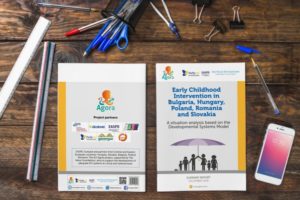Avapace project: DEVELOPMENT OF A TRAINING PROGRAM FOR ENHANCING THE IMPLEMENTATION OFFAMILY-CENTERED EARLY INTERVENTION IN CEREBRAL PALSY
Start: 01/11/2018, End 31/10/2020
Partners:
AVAPACE, Asociacion Valenciana de Ayuda a la Paralisis Cerebral, Project leader and coordinator
http://www.avapace.org/noticia-detalle.php?IDnoticia=339) , Spain;
IL CERCHIO, umbrella organisation for 16 organisations focussed on social inclusion, Italy;
APCB (Association of CP of Braga) , Portugal;
DAAS, IT support, Spain;
HURT, Croatian Association of Occupational Therapists, Croatia;
Eurlyaid
Project objectives:
- Provide guidelines and tools to support the implementation of Family-Centred Early Intervention in Cerebral Palsy
- Develop proper skills in professionals, parents and informal supports for increasing andoptimizing the implementation of Family-Centred Early Intervention in Cerebral Palsy
- Promote Empowerment of Parents
- Strength the Networks of Informal Supports and increase the collaboration and sharing inside them
- Include Adults with Cerebral Palsy as part of this Networks of Informal Supports
We will inform you on contents and progress by newsletters.
Agora project: developing ECI services through participation & co-production
Duration: 28 months. Possible trough funding by VELUX Foundation.
Project partners:
– EASPD-Brussels
– Eurlyaid-Luxembourg
– Dizabnet- Romania
– Naso-Bulgaria
– National Association of Supporters and Service Providers of ECI- Slovakia
– Gezenguz Foundation- Hungary
– CSWU-Poland
The project consists on an innovative pilot initiative developed in 5 Central and Eastern (CEE) countries (Hungary, Slovakia, Poland, Romania and Bulgaria) addressed to overcome the challenges in the implementation of strategies to develop adequate Early Childhood Intervention (ECI) systems for children with disabilities.
Why “AGORA”?
1. We want to create an all-embracing learning and convening space to bring together essential actors to co-produce high quality ECI services
2. We want to produce practical guidance and tools to provoke a systemic change on the social welfare system by improving the legal and policy frameworks at European, national and/or regional levels
3. We want to develop examples that can serve as inspiring guidelines for other countries in Europe and other groups of children with special needs or at risk of exclusion (such as children with Roma or migrant background).
From our AGORA Project now is ready the final version of the summary report.
EU project: VET for EI - Vocational Training for Physiotherapists about Family Centred and Play Based Approaches in Early Childhood Intervention (ECVET Based)
2017-1-TR01-KA202-046189
Duration 24 months.
Partners:
Spastic Children’s Foundation of Turkey (Turkiye Spastik Cocuklar Vakfi)
University of Minho-Portugal
PRAXIS EUROPE CIC- United Kingdom
GAZI UNIVERSITESI-Turkey,Ankara
ENGELLI YASLI HIZMETLERI GENEL MUDURLUGU, Turkey, Eskişehir
Associação de Paralisia Cerebral de Braga, Portugal
Eurlyaid, Luxembourg
Website: http://vetforei.eu/
In this project, the target group is physiotherapists working in the clinic with infants and children. It is necessary to know the physiotherapists closely to understand the logic of the project.
Physiotherapists are highly qualified health professionals who help people affected by injury, illness or disability through movement and exercise, manual therapy, education and advice. Physiotherapy “provides services to individuals and populations to develop, maintain and restore maximum movement and functional ability throughout the lifespan”.
Physiotherapists graduate with a 4 year undergraduate degree. During the first two years of undergraduate education, there are courses in basic medical sciences such as anatomy, physiology and assessment courses. In the third year, courses on treatment movements are given for diseases in different fields such as orthopaedics, neurology, cardiovascular and children. In the last year of education program, there is clinical internship practice. Physiotherapy practices in children’s diseases are taught as a compulsory course for one or two semesters in the 3rd year of the program. The field that physiotherapists serve is very broad and because they serve so many different diseases, basic training programs for diseases are very basic in undergraduate education. The basic level of physiotherapy given in undergraduate education is called “traditional physiotherapy applications”. Traditional physiotherapy practices do not take into account the development of the baby and the child, the characteristics of the baby with developmental risk and the characteristics of the mother and parents. There is no part of the world that is training an early intervention specialist in undergraduate education. For this reason, early intervention practices are provided by a multidisciplinary approaches by physiotherapist, child development specialist and psychologist.
In the state of Texas in the United States, physiotherapists who are willing to work on early childhood intervention field are obliged to take additional courses from the child development and psychology departments to solve this problem. World Confederation for Physical Therapy (WCPT) recommends that the undergraduate curriculum should be at least 70% identical in different countries. For this reason, physiotherapists’ post-graduate training needs are valid in all countries. The WCPT has stated that physiotherapists should develop themselves with the Master and Doctorate programs related to the field in which they work. However, this recommendation is not a recommendation that all physiotherapists working in the clinic can perform.
Our project aim is to strengthen the competences of physiotherapists about new approaches in early intervention system.
To ensure this can be achieved, VET for EI will generate:
-a dedicated curriculum and relevant training material for the physiotherapists about play-based and family centred approaches in early childhood intervention (based on ECVET learning outcomes approach)
– an innovative online learning platform, that will allow for an interactive learning experience anytime anywhere (PC, smartphone and tablet), multilingual, and following the Open Source approach (so “free”), provided freely to the related target group.
– the county reports which shows the current system and approaches about early childhood intervention system in partner countries
– the comparative report which the early childhood intervention systems of the partner countries will be compared.
Closing Symposium of the project :
18. October 2019 at Spastic Children’s Foundation of Turkey see International Conferences
Development of the National System of Early Childhood Intervention in Ukraine (ongoing)

Goal: Development of the National System of Early Childhood Intervention in Ukraine and piloting of the ECI system in the four regions.
Eurlyaid participates in and cooperates with:
- The National Assembly of People with Disabilities (NAPD),Kyiv,
- SOFT Tulip Foundation, Netherlands
- Charity Fund Early Intervention Institute (CFEI), Kharkiv,
- Dzherelo Rehabilitation Centre, Lviv
- Transcarpathian Regional Center of Complex Rehabilitation The Path of Life, Uzhgorod,
- “Healthy society” ECI center, Odessa,
To support national Ukraine partners and contribute to the further development of the national Early Childhood Intervention system in Ukraine by offering for instance:
- Information/exchange of expertise
- Assistance in the development of policy and quality standards in the field of ECI
- Capacity building of local experts and specialists
- Organization of multidisciplinary working meetings
- Training and coaching
MY SCHOOL IS MY HOME NOW
 Turkey, Netherlands, Germany, Austria and Eurlyaid
Turkey, Netherlands, Germany, Austria and Eurlyaid
2015-1-TR01-KA204-022361
start: 2015-11-01 till 2017-10-31
The project has been designed to provide access to education for students who cannot go to school because of their handicaps. The main basis of our project is to enable the students with disabilities who cannot attend school lessons to follow their lessons along with the other students through remote access and the digital services. Thus, the effect of inequality which disabled students have experienced when they are deprived of education will be reduced to a minimum and will be helped them to have the same educational outcomes with their peers

Kick off meeting was in Ankara on 18-19 Dec.,2015
2nd meeting:
The meeting was in Utrecht, Netherlands as the office of BOSK is situated in that city on 26-27 May,2016.
3rd meeting:
The meeting was in Hamburg, at the University conference room on 1th and 2nd of December, 2016.
4th meeting:
The meeting was in Graz ,Austria on 26th and 27th of April in the Institution for Special Pedagogic and
Early Childhood Intervention.
Final meeting:
The last meeting was in Ankara on 11 and12h October 2017
project website:
Taking Action for Children
 Eurlyaid is currently a partner in the ‘Taking Action for Children’ project in Russia.
Eurlyaid is currently a partner in the ‘Taking Action for Children’ project in Russia.
This project, running from 2010 to 2013, is seeking to establish standards of good practice in early childhood intervention in Russia as well as a national early childhood intervention association.
For further information, please see the following documents:
‘Standard requirements to organization of early intervention services’ (by the project consortium)
‘Стандартные требования к организации деятельности службы раннего вмешательства’ (in Russian language)
‘Early Childhood Intervention in Russia’ (by Prof. Jan M.H. De Moor, Radboud University Nijmegen)
‘Eurlyaid in the context of European Early Childhood Intervention’ (by Prof. Manfred Pretis, Medical School Hamburg)
LLP / Lenoardo-Da-Vinci Project 'ECI2.0': European Competence Initiative - Early Childhood Intervention
 ECI2.0 is a ‘Transfer of Innovation’ Project within the EU Lifelong Learning Programme targeting vocational education and training (VET) in the area of early childhood intervention professionals, funded by the European Union through the Turkish National Agency for Lifelong Learning.
ECI2.0 is a ‘Transfer of Innovation’ Project within the EU Lifelong Learning Programme targeting vocational education and training (VET) in the area of early childhood intervention professionals, funded by the European Union through the Turkish National Agency for Lifelong Learning.The project lasts from December, 1st 2012 to November 30th, 2013.
Eurlyaid is contributing to the project by providing expertise and European dissemination.
For further information, please visit the ECI2.0 project website !
LLP / Lenoardo-Da-Vinci Project 'ICF-TRAIN' - ICT-based Team Learning in ICF
 ICF-TRAIN is a project for the improvement of ECI performed by transdisciplinary teams through development of online training and cooperation tools based on the common ‘language of ICF_CY.
ICF-TRAIN is a project for the improvement of ECI performed by transdisciplinary teams through development of online training and cooperation tools based on the common ‘language of ICF_CY.The project will last from November, 1st 2012 to October 31st, 2014.
Eurlyaid is contributing to the project by providing expertise and European dissemination.
For further information, please visit the ICF-Train project website !

